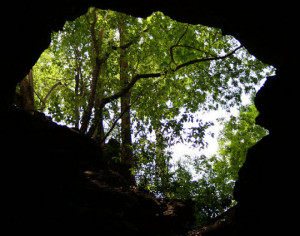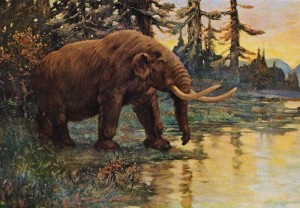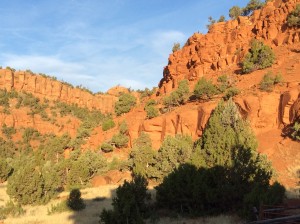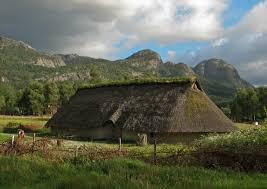Speaking of great new archaeological discoveries… http://westerndigs.org/10000-year-old-stone-tool-site-discovered-in-suburban-seattle/
 In the 1970s a French archaeologist made a dramatic new discovery in a cave in Brazil: the 12,000 year old remains of a woman, about twenty, with very different physical characteristics from other peoples in the Americas at the time. After careful study, a number of archaeologists speculated that she was Australoid or even African, which sparked a debate that has yet to end. How did she get here? Certainly not across the Bering Strait land bridge or remains from her population would have been found in North America. Across the ocean? Well, that would imply extraordinary watercraft skills. 12,000 years ago? Really?!
In the 1970s a French archaeologist made a dramatic new discovery in a cave in Brazil: the 12,000 year old remains of a woman, about twenty, with very different physical characteristics from other peoples in the Americas at the time. After careful study, a number of archaeologists speculated that she was Australoid or even African, which sparked a debate that has yet to end. How did she get here? Certainly not across the Bering Strait land bridge or remains from her population would have been found in North America. Across the ocean? Well, that would imply extraordinary watercraft skills. 12,000 years ago? Really?!
While archaeologists are still debating Luzia, recent studies have re-dated her remains to a maximum of around 11,700 years ago.
She is still an archaeological rarity, and one of the most fascinating sites in the Americas.
Read more about it: https://journals.uair.arizona.edu/index.php/radiocarbon/article/view/16253
 It’s not like this is a new discussion in archaeology. Archaeologists have been debating this question for almost a century. The evidence is strong that megafauna extinctions were caused by a mixture of climate change and human hunting, and that human hunters were here on the continent long before the famed Clovis culture arrived. There are four verifiable pre-Clovis mammoth and mastodon sites in North America now: The Schaefer and Hebior sites in Wisconsin, the Manis site in Washington, and the Page-Ladson site in Colorado. As well, there are several tantalizing sites that seem to date back more than 40,000 years.
It’s not like this is a new discussion in archaeology. Archaeologists have been debating this question for almost a century. The evidence is strong that megafauna extinctions were caused by a mixture of climate change and human hunting, and that human hunters were here on the continent long before the famed Clovis culture arrived. There are four verifiable pre-Clovis mammoth and mastodon sites in North America now: The Schaefer and Hebior sites in Wisconsin, the Manis site in Washington, and the Page-Ladson site in Colorado. As well, there are several tantalizing sites that seem to date back more than 40,000 years.
But who were the hunters who came before Clovis? Ah…that’s a good question.
You might want to read: www.pas.org/cgi/doi/10.1073/pnas.1420650112
 It’s such a pretty day here. We swear the Chugwater sandstone glows in spring sunlight. The red color comes from its high iron content. This particular sandstone dates to around 200 million years ago, right after the Permian extinctions (@250 million years ago) when 90% of all life on earth died. The Chugwater tells geologists that Mother Earth was working hard to renew herself.
It’s such a pretty day here. We swear the Chugwater sandstone glows in spring sunlight. The red color comes from its high iron content. This particular sandstone dates to around 200 million years ago, right after the Permian extinctions (@250 million years ago) when 90% of all life on earth died. The Chugwater tells geologists that Mother Earth was working hard to renew herself.
 Ever wondered what Viking houses looked like? Well, construction techniques depended upon the time period and geographical location. This was a typical Viking house in Europe around AD 1,200. However, Viking houses in North America around AD 1,000 looked like the one below found at the L’Anse aux Meadows site in Newfoundland. L’Anse aux Meadows is a UNESCO World Heritage site. This is a delightful site to visit, by the way. In the summer, they have living history programs that are just fabulous.
Ever wondered what Viking houses looked like? Well, construction techniques depended upon the time period and geographical location. This was a typical Viking house in Europe around AD 1,200. However, Viking houses in North America around AD 1,000 looked like the one below found at the L’Anse aux Meadows site in Newfoundland. L’Anse aux Meadows is a UNESCO World Heritage site. This is a delightful site to visit, by the way. In the summer, they have living history programs that are just fabulous.